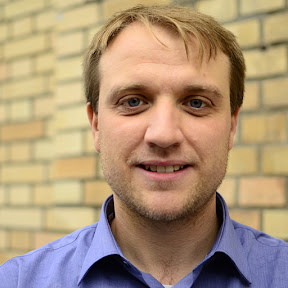Yesterday, I participated in MobileMonday here in Barcelona. This is a community of mobile professionals that promotes mobile industry and fosters cooperation and networking. They organize presentation every once in a while to disseminate nice ideas. Yesterday, they invited four Mobile Social Media start-ups to present their concept ideas.

Udo Szabo, presented the OVI Technology platform. Udo presented the main concepts behind the idea of the OVI framework. Basically, Nokia understand that the growth of the mobile marked will not provide new revenues in the future unless they concentrate in providing new mobile experiences to their customers. They started to study carefully how people use mobile media and they found interesting differences compared to traditional desktop media. For instance, they found that on a mobile phone people like to use their real name instead of their nickname because when we share location it makes sense to know who you are. Therefore, people are willing to disclose their privacy. Also, he highlighted how the convergence achieved in mobile phones creates complexity instead of simplifying things. Their philosophy, incarnated in the OVI platform, consists on simplify experience by offering consistently adaptive interfaces and focussing on what is personal and relevant. The OVI differ from their previous products because the way they defined context. Context increases relevancy, allows people to connect in new and better ways, and connects the online and virtual world. Their OVI platform will be open source. Nokia will be announcing the release of this software and new related hardware this week at Nokia World 2008.

Sampo Karajalainen presented Mini Friday, the mobile interface of Habbo Hotel. It is a mobile virtual world available for Nokia Series60. Sampo revealed some interesting facts during the presentation. For instance, they had over one million virtual characters created in Mini Friday since they started one year ago. This is still little compared to the 130 millions avatars created in the web portal but still it reveals nice possibilities for mobile interfaces. Also, Sampo explained how virtual services take off in unexpected places. For instance, they found that over 18% of their accounts, the largest chunk, were created from Indonesia. Also, they found that people connected mainly from home instead that during commuting time. Others findings were more expected: shorter and more frequent sessions compared to the sessions in the desktop portal. One of the mayor challenges that they have to deal with the limited attention span that users have for elements of the interface because while mobile, attention switches between real and virtual world continuously. The challenges that we need to fight are always the mobile frameworks fragmentation, the latency of mobile phones and the data pricing. However, this case study shows also the new forms of communication enabled by virtual worlds.

Peter Vesterbacka presented ConnectedDay, a service for the daycare sector: the providers and their parents. Peter started from the assumption that it is difficult for parents and kids to share their daily activities when it comes the dinner. So, they designed a service that would enable parents and kids to share media. The main idea is to give to the daycare providers a mobile phone with a dataplan and the application (paid by the parents). By using the software preloaded on the phone, the educators can take pictures of the kids and add descriptions of the activities. This material is uploaded in realtime to a browser-based interface, accessible by the parents. Additionally, the daycare centers can reuse this material for documentation and publication purposes.

Finally, Peter Green presented Ramblas Digital a mobile social media. I have to admit that I was quite tired and I might be missed the point of Peter’s presentation. He presented lots of examples of polls created through SMSs that are usually used in public events and the results projected on a big screen. He said that they started this as a fun game and they are thinking to transform this into a startup.
Finally, Jonathan Wareham led the closing panel on mobile social media. I took a couple of random notes about ideas which I found interesting:
1- more research should be devoted in unlocking the social nature of the phone book;
2- we witness an incredible raise of freely available data from which we can extract knowledge. For instance, Google found that certain search terms are good indicators of flu activity. Google Flu Trends uses aggregated Google search data to estimate flu activity in your state up to two weeks faster than traditional systems.
3- Do we have to establish a governance in social networks? It is difficult to manage networks with more than 150 friends. Interfaces might constitute a big issue for this problem (e.g., blog’s conversations are usually serial, while we do not think in linear ways).
